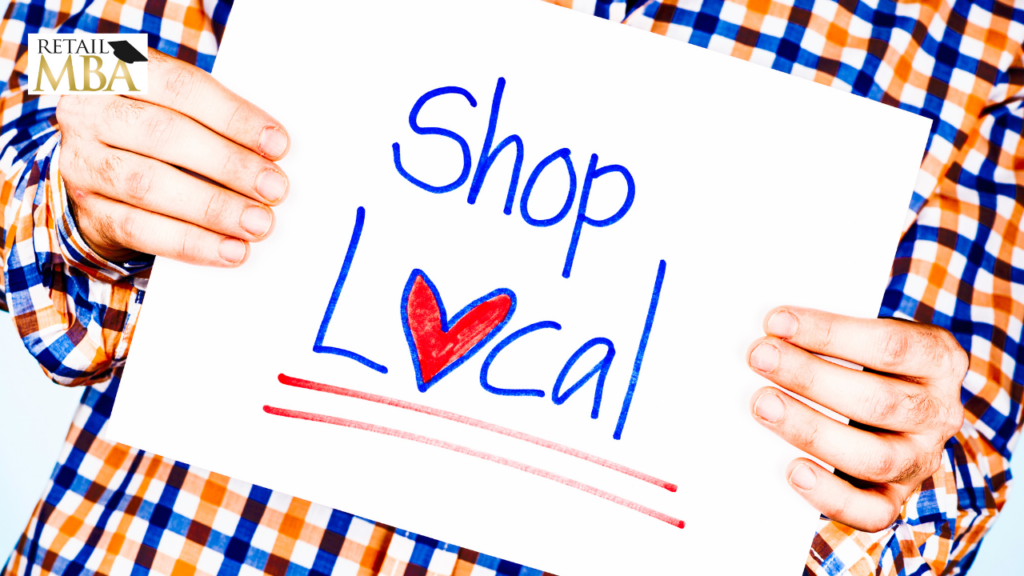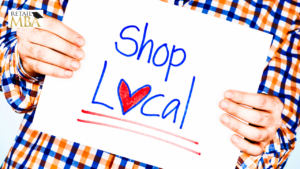How to Sell Your Product in Local Stores

How to Sell Your Product in Local Stores
Local stores are often the ideal starting point when pitching your product, as this reduces costs while giving you an idea of how well they fit with existing inventory.
Small retail shop owners and boutiques generally seek products that complement their brand and niche, and may also be more likely to carry newer offerings that aren’t yet widely recognized.
Start Small
Selling your product locally stores is an integral step to expanding your business. Selling to big-box retailers or adding convenience stores as new market participants to carry your goods increases sales and customer awareness of your brand. However, starting small may be best to ensure you make the most of this new market opportunity; usually it is less costly to partner with existing retail locations than opening new storefronts yourself.
First, target smaller retailers who share your demographic. Reach out to a buyer via email or phone and inquire as to their interest in your product; if possible arrange to meet in person and bring samples so the buyer can assess how your offering matches up against what’s already on their shelves and decide if they want to add it or not.
Retailers need evidence that your product has already proven its success on a small scale. Use statistics from your website and other information sources to support any claims you make about its success in their area. Also provide estimated unit costs per item so potential retailers can assess how profitable purchasing your product from you would be for them.
As soon as you’re ready to approach larger stores, research their chain online and identify who their buyers are. Utilize LinkedIn to search for decision makers within each store chain. Once contacted directly by them, introduce yourself and present why your product would make an excellent fit based on unique features or customer benefits.
Approach Smaller Stores First
Not all businesses, like grocery stores or boutique shops, will offer your product the audience it needs. A small shop can help test production and marketing methods before approaching larger retailers; and give you an opportunity to form relationships with people who can give valuable feedback about how well your product sells against its competition.
Large supermarkets typically only accept established products or those already packaged themselves, making it unlikely for your product to make the cut unless it offers something distinctive for their customer base. You can get an idea of what these larger retailers are seeking out by attending trade shows or speaking with people working there such as managers, buyers or directors of procurement.
When speaking with buyers or directors, present them with a product sales sheet or catalog showcasing how your products fit their store’s demographic. Introduce yourself and your company name before briefly explaining why your product might appeal to their customers. Request samples be sent, set up meetings or phone calls as soon as possible.
If you can’t meet directly with potential buyers, send out a letter or email with information on your product and business, including unit cost and profit margin calculations that include manufacturing, shipping and packaging expenses.
Bring Samples
Visit stores directly when selling products to smaller businesses that are likely to respond well to your pitch, especially smaller businesses that can more readily accept your presentation. In-person meetings also give buyers an idea of the value and purpose of your product and offer insights into whether they fit well within a store’s product mix and mission statement.
Call your desired store and introduce yourself and your brand, briefly outlining why the store would be an ideal fit for your products. For instance, if selling cosmetics to Sephora is your goal, explain that their customers would love your line before asking to meet with the buyer for further discussion.
When meeting with buyers, be sure to bring market research, business documents, samples of your products and packaging options as well as explanations as to why each decision was made. Be prepared to address how they differ from what the store already sells and their customer base – for instance if you run a small beverage company you could highlight how your drinks are organic and healthy while being tailored towards meeting customers needs and tastes; sales growth would also be important; it’s a good opportunity to mention where most orders come from as well as any media coverage that’s been received on.
Offer to Consign
Many retailers, especially large chains, prefer products that have already established a market presence. Offering to sell your product on consignment can help build demand before approaching larger stores with full inventory requests. If one doesn’t accept it initially, explore ways to work together together instead, like providing small amounts at first and gradually increasing it over time.
Contacting local store owners begins by writing an email that describes your product and the benefits to their customers. Be sure to greet each buyer by name and provide a brief note about why their store would make a good fit for carrying it. If meeting in person is impossible, send out letters or emails containing sales sheets and press clippings instead.
If you are approaching a retailer that regularly works with handmade artists and makers, visit their shop and look at what products they carry on their shelves. Be mindful of which ones are selling well and which ones don’t. Take note of buyers’ names and contact information in case you want to reach out later; ask if there is someone at their store who could discuss your product further, as well as set a meeting time when samples will be brought by.
Step-by-step training on how to sell to major retailers
We explain exactly how to do that and how to get started today. I’ve taught tens of thousands of companies on how to get your products to the stores. And so we’re here to support you. Or please subscribe to our Youtube channel and or be on the lookout for additional training that we create.
We are here to expedite the process of making money with your physical products and that’s what we’re all about. Take a look at our advanced training, live events, certification programs and so much more.
In this training, I will discuss some of the things to think about when approaching a retailer to sell your products and become a vendor. Hope it helps! 🙂
Karen Waksman,
Retail MBA
Questions? Contact Us!
1-855-Retail-2 (Call or Text)
Email: info@retailmba.com
Retail MBA provides a step-by-step formula on How to Sell to Major Retailers, Online Retailers, Smaller Retailers, Catalogs and More. No Experience Required! These solutions continue to convert for clients year-over-year! These are Time-Tested and Proven Strategies that we utilize ourselves when going after stores! Everything we teach, we test. Want access to these formulas? ANY one of our programs and coaching systems gives you access to them now. With that said…
Here are 4 Easy Ways to Work with Us:
1) Free Training – If You Would Like to Join Our Next FREE Webinar Training Called “Retail Chain Store Secrets – How to Sell to Major Retail Chains. No Experience Required” Then Sign Up NOW To Learn All About Selling into Retail Chains By Clicking Here! https://www.retailmba.com
2) Masterclass Intensives – Want to Join our Next 4 Week Elite Retail MBA Masterclass Intensive? These Intensives Are EPIC for people who Love Fast Paced Learning – Homework, Retail Coaching, Developing Your Strategy, Buyers Contacts and More! These Events Are Held Every Quarter. Join us by Clicking Here: https://www.retailmbabrands.com/masterclass
3) Done-for-You Program – If You Want Karen Waksman and Her Team to Reach Out to Your Top Dream Retail Chains On Your Behalf – And You Have a Retail-Ready Product, Check Out our Epic Done-For-You Service by Clicking Here: https://www.retailmbabrands.com/done
4) In Person Events – If You Want to Learn LIVE and Meet Karen Waksman in Person at Our Next Retail Sellers LIVE Event with Other Like-Minded Individuals in Beautiful San Diego, CA!
We Would LOVE to Have You Join Us by Clicking Here: https://www.americasnextretailproduct.com
Thanks so much.
And…if you like this training, you will love these new short training sessions as well! Click on the links provided to watch and grow your consumer product business TODAY!


